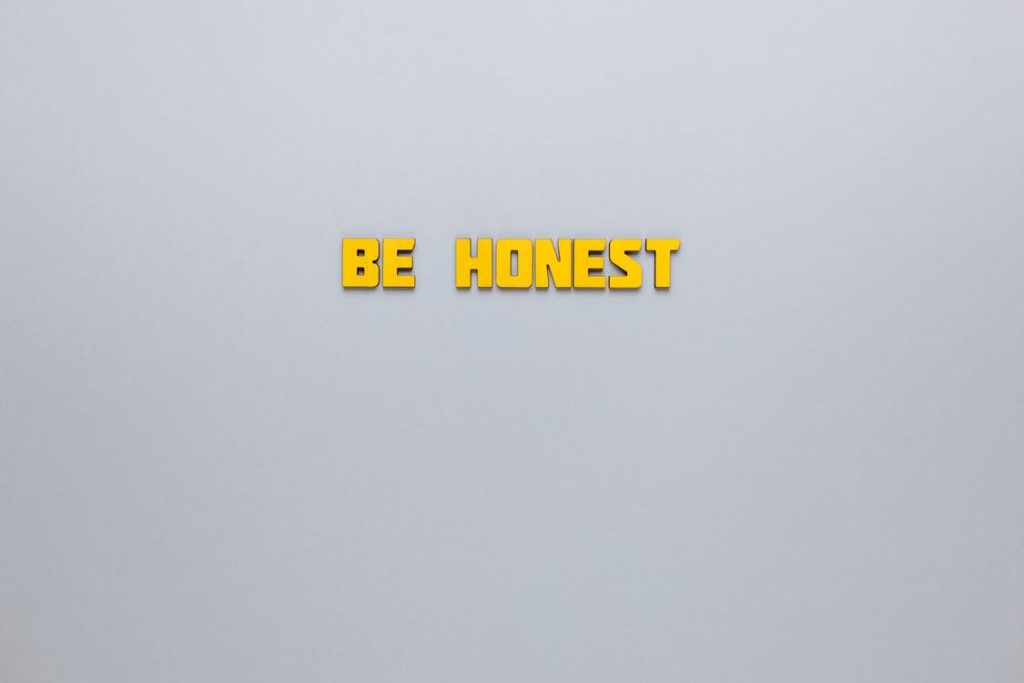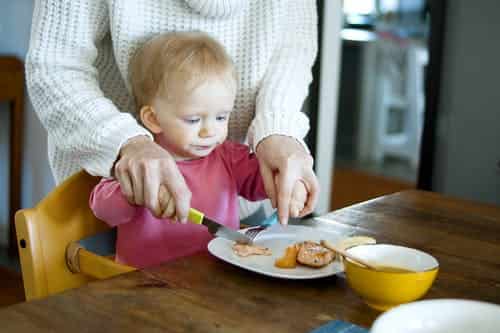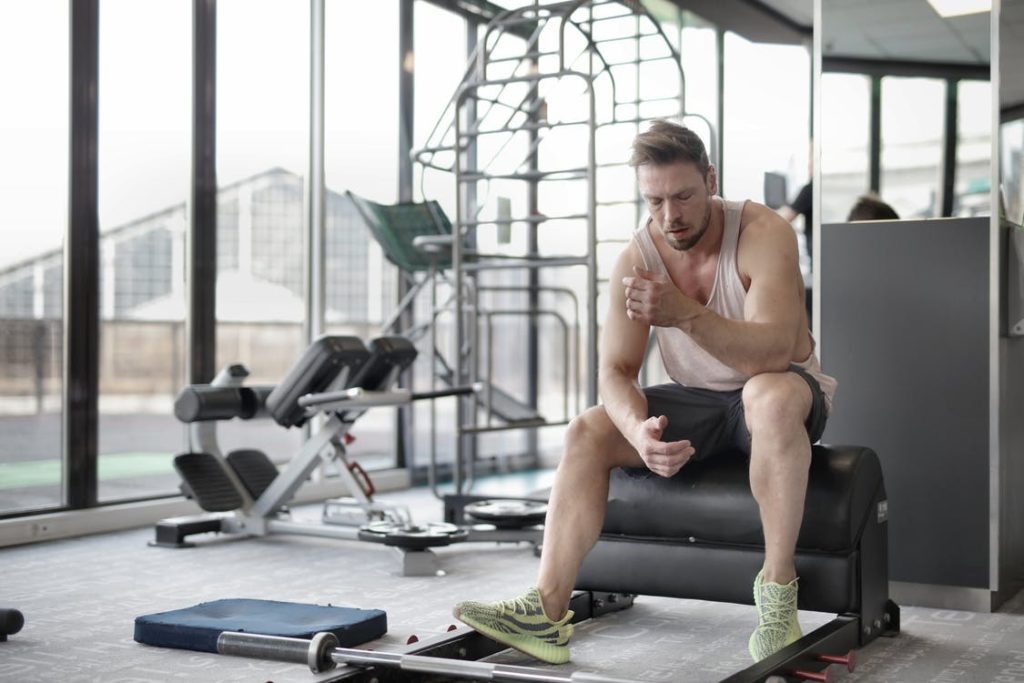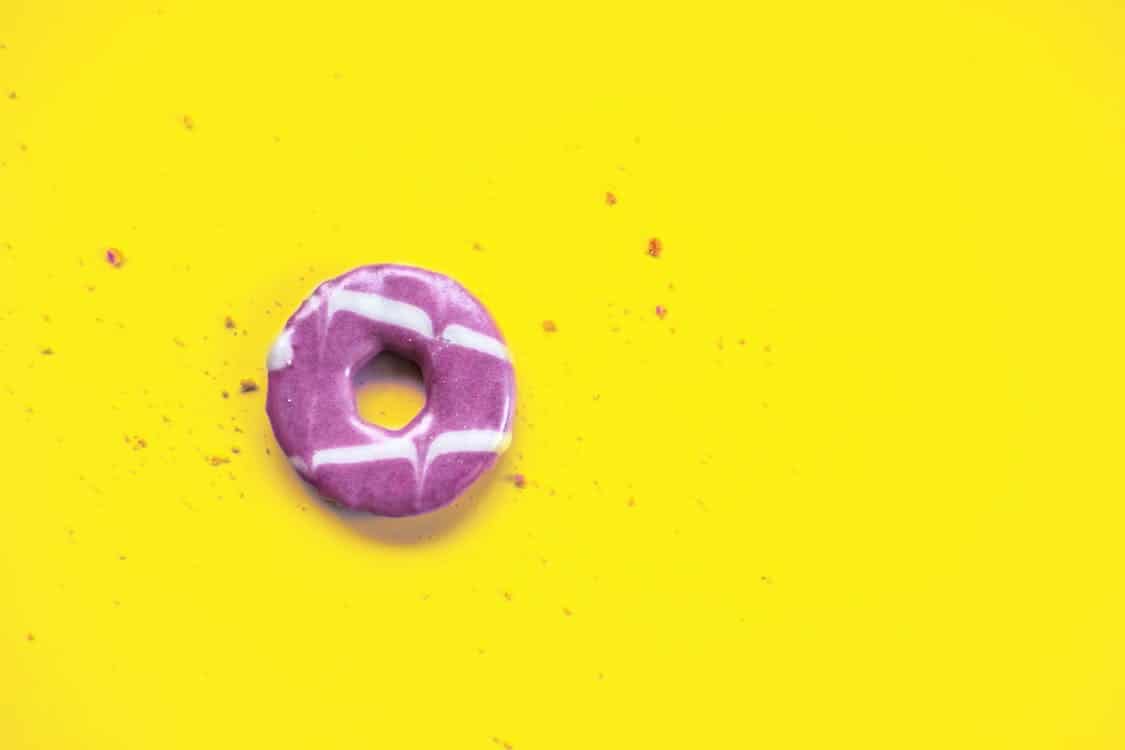“But it makes me happy”
“But I’m really not doing that much”
“But I used to do so much more”
“But the (insert a myriad of medical professions here) said it was ok for me to (insert exercise here)”
“But it’s the only thing I’ve got”
I can hear the panic rising behind the words.
The escalation in the statements.
The franticness of it.
The trying to convince me.
The trying to bargain with me.
Like I’m about to take away the best part of her life.
I’m not.
And it’s not the best part of her life.
It’s legitimately probably the biggest part and undeniably the most consuming part of her life by this stage but far from the best.
She believes she can’t cope without it.
And I can argue with her.
Easily. I have some strong points.
But I don’t.
I don’t argue with my clients.
My arguing won’t help.
I have no doubt she’s just about heard it all.
Even from herself.
I have no doubt she has lain awake at night every part of her body, mind and soul aching and promised to herself that tomorrow (or some unspecified time in the future) it will be different…
I have no doubt that if she could stop, she would have.
I see the tears building.
I see the trapped look in her eyes.
After all I know it.
I know it all too well.
Because I’ve lived it.
The belief that this is all you have, the reasoning, the begging, the “buts”, the comparisons, the delusion, the grasping at straws, the convincing.
And underlying it all a visceral fear.
A fear I can no longer quite remember the full intensity of but which I know it felt worse than death.
If you are overexercising, if you feel like exercise is a “have to” vs a “get to” or “choose to” then it’s not making you happy.
It may very well be making you momentarily less anxious, it might be tiring you out or numbing you, but that’s far from the same thing as making you happy.
Less anxious is not happy.
Numb is not happy.
Happy is happy.
Honesty: It Starts and Ends with You

The person you’ve got to be honest with here is yourself.
Is your body healthy?
Are you happy?
In your heart of hearts are you happy?
Is this way of doing things working for you?
How do you feel about continuing doing this for the next 20 years?…
You don’t have to know how you can change it, you don’t even have to believe it’s possible to change it and you don’t have to take any steps on changing it.
Just start with honesty.
Even if that’s only inside of your own mind.
Is this exercise really serving you?
You can be honest and keep doing it but don’t try to trick yourself into believing it’s serving you in ways it’s not.
It doesn’t matter how much you’re doing or if you used to do more or if you know people who do more.
It matters what your body is saying.
You Are the Only One Who Can Change This

That’s why I’m not here to take it away from her.
It’s not in my power to make her stop.
And even if I could, I wouldn’t.
That’s for her to do.
The Butterfly

Have you ever heard the story about the little girl who sees a butterfly struggling to get out of its chrysalis?
She can see a slit in the chrysalis and through the slit the butterflys wings are all folded and wet and fresh.
She watches it with fascination as it struggles to emerge fully from the chrysalis for what seems like such a long time that she takes pity on it.
It is having such a hard time getting free. It must be exhausted and she really wants to help.
With all the care in the world she helps it the last little bit of the way by gently opening the chrysalis wider and pulling the butterfly out and gently placing it on a smooth, soft leaf.
She watches as it falls roughly to the ground.
She waits for it’s gorgeous colourful wings to unfold.
She wants to see it fly away free.
She waits and waits and waits.
Its wings don’t seem to be unfolding as they should.
They looked frail and weak.
And she feels sad, unsure and a bit scared because her intention was kind.
She only wanted to help.
What she didn’t realise was that the butterfly needed to struggle to make her wings strong.
She was unaware that when you care you also must know another’s struggle may just be the way for them to grow…
My role is not to do it for the people I work with but to allow them to come home to themselves, to access the inner guidance and skills they have and to develop and expand areas where they may be lacking.
My role is to be honest.
My role is to give my expert opinion and let her know my professional recommendations (in a nutshell – eat more and stop exercising).
It would be utter negligence to not state the obvious.
But my role goes deeper than that.
My role is to help her become increasingly ok with eating more and not exercising.
My role is to help her build a clear and simple relationship with food and exercise.
Until it’s something she chooses because she wants to, because she has the energy and the desire to move her body and not because an internal unidentifiable part is commanding her to.
My role is to help her become her.
My role is to help her reclaim her body, her mind, her choices, her life.
My role is to help her reclaim all parts of her that have been swamped and stifled and ignored and downplayed and starved while she lives with an all-consuming eating disorder.
My role is to help you reach your goals. Not my goals for you.
I’m a facilitator, a guide while you prove to yourself what’s possible, but you are the one that must do the hard part – the doing.
At the end of the day all the credit of your recovery goes to you.
As it must because you and only you are the one who must be in the driver’s seat of your life.
It’s Possible

I remember in my early twenties my boyfriend at the time asking me if I thought I’d ever be able to eat enough to support the exercise I did.
I remember thinking what a stupid question.
I thought “of course! I eat so much!”
It wasn’t long after that I realised what he meant.
He was genuinely interested
Because he hasn’t seen proof of that.
He’d been privy to 7yrs of lapses and relapses of varying degrees of severity but certainly 7yrs where I was always struggling. It was clear to him that it never came easy.
It was my normal.
At the time I thought it was hard to eat enough.
At the time I thought it was always going to be a battle.
I remember when I lived in Puerto Rico one day the woman, I worked with asked me a question something along the lines of “wouldn’t you like to have some reserves, some stores, some buffer if things went wrong”. She gave the example of if there was a cyclone, and we were stuck at the bed and breakfast we were working at cut off from outside resources for months.
I was taken aback.
How dare she bring this up so blatantly.
I laughed and joked that we were in the best place if something happened to have all the food we could ever want on supply. The fridge and freezer at the bed and breakfast were massive and fully stocked with ridiculous amounts of foods.
At the time I thought it was hard to eat enough.
At the time I thought it was always going to be a battle.
I now know I was wrong.
It’s not a battle.
I no longer have to battle with myself to eat.
I no longer even have to put a lot of conscious effort into eating enough so I can exercise in the ways I now enjoy.
My body is fully capable of making those calls.
And I trust it.
100%.
I never imagined I would have such a relationship with food that it was in every sense of the term “just good”.
I never imagined my body would easily maintain weight.
I never imagined I’d have the relationship with exercise I have today.
It wasn’t that I hated exercise when I was sick. It never even felt like it was something I was forcing myself to do or using to punish myself. It may very well have looked like that from the outside or been easily misinterpreted in that way and I could have made it into something it wasn’t but truly it was more just something I had to do.
It was an addiction.
The level of inner turmoil, anger, frustration, grossness I felt if I didn’t was next to nothing, I feel in my life now.
It is possible to fully recover from eating disorders and from compulsive exercise.
The caveat is that it takes work to and not the kind of work we’re used to which is why I think we find it so hard.
Living with an eating disorder you’re used to pushing yourself, being mean to yourself, blaming yourself but the kind of work you have to do to recover is the opposite. It is all about learning to listen to yourself, trust yourself, accept yourself and be kind to yourself.
If it was all a matter of challenging yourself and pushing yourself everyone would recover very quickly!
People living with eating disorders are great at that.
It’s the opposite you now must learn.
And that is why we say recovery is hard.
How to (Really) Help Someone You Love

If you are lost with how to help someone you care about who seems to be struggling with recovery from an eating disorder and compulsive exercise the best things to do are;
- Have patience with them.
As hard as it might be to believe (and it can be so hard to believe this) please know that they are trying their hardest!
Also please know that their recovery is very unlikely to be a series of continuous upwards wins.
They’re going to stuff it up.
They’re going to have good moments and great days and they’re going to have dark moments where they say things like “it’s not worth it”.
It’s a part of the process. Sometimes it really doesn’t feel worth it.
The sun will come out again.
You can take 100 steps back a day and 100.5 steps forward, some days you may make no steps forward but over time all those additional 0.5 steps add up.
They add up to a whole new life.
Be patient with your loved one even when you don’t understand.
- Assist them in getting professional help.
Your role is to be their parent, friend, sister, brother, partner and so on.
Not their therapist.
Support them. Be patient with them and get them help.
Just like the butterfly this is a journey only they can do.
A growth only they can make.
Getting them help that can help them get out of the chrysalis, strengthen their wings and fly off by themselves is where the true magic is.
I know I will be forever grateful to my mum who supported the treatment I had.
There would have been many times I’d have stopped going to the clinical hypnotherapist and coach I was seeing before I was ready, because I believed I wasn’t worth the money, because I was wasting peoples time, because I believed I was broken and recovery was impossible, because I believed I should be doing it on my own, because friends and partners wanted my time or because it wasn’t working fast enough.
Even if you’re loved one doesn’t express that they think these things or if they sometimes do, I can assure you they are struggling with some of them or their own set.
If someone you love and care about is living with an eating disorder the two best things, you can ever do for them are to 1. have patience (lots of patience) and 2. help them access (and continue) treatment.
With my whole heart I hope you found this information useful and inspiring.

Become Great. Live Great.
Bonnie.



